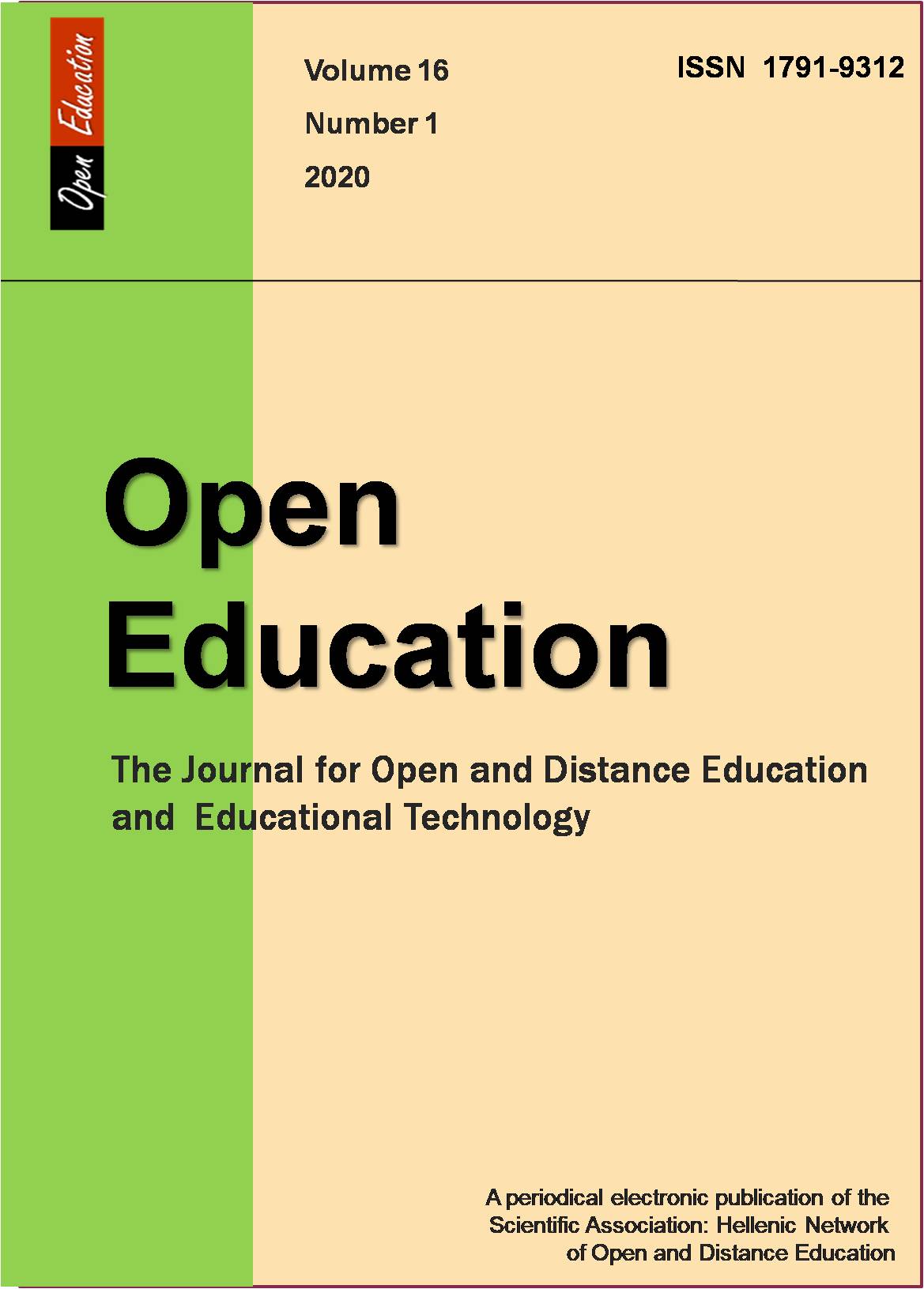Τα MOOCs ως Πολύπλοκο Σύστημα: Πρόταση Ενός Υβριδικού Μοντέλου Στηριζόμενο στην Αρχή της Διαθεματικότητας / ΜΟΟCs as a Complex System: Α proposal of a Hybrid Model Based on the Principle of Interdisciplinarity

Περίληψη
Τα πρώτα Μαζικά Ανοικτά Διαδικτυακά Μαθήματα (Massive Open Online Courses - MOOCs) ήταν εδραιωμένα στη θεωρία του Κονεκτιβισμού. Στόχος ήταν η μάθηση να παρέχεται μέσα από μια διαδικασία αλλεπάλληλης δικτύωσης και αλληλεπίδρασης των συμμετεχόντων σε διαφορετικά σημεία στο διαδίκτυο. Ωστόσο, αν και ο παιδαγωγικός σχεδιασμός των πρώτων MOOCs κρίνεται έως σήμερα από πολλούς ερευνητές καταλληλότερος, στην πορεία, παρατηρήθηκε στροφή προς την υιοθέτηση MOOCs βάσει πιο παραδοσιακών μεθόδων. Ο λόγος είναι πως η ανοιχτότερη και πιο ελεύθερη φύση των πρώτων MOOCs δημιουργούσε εμπόδια στην εφαρμογή της αξιολόγησης. Σκοπός της παρούσας μελέτης είναι μια ανασκόπηση των υβριδικών μοντέλων MOOC και η εισήγηση ενός νέου υβριδικού μοντέλου MOOC το οποίο θα συνδυάζει την υψηλή ποιότητα αξιολόγησης με τις βασικές παιδαγωγικές ιδιότητες των πρώτων MOOCs. Πρόκειται για μία εναλλακτική θεώρηση του Κονεκτιβισμού, εδραιωμένη στην Θεωρία του Χάους από την οποία και γεννήθηκε το συγκεκριμένο ρεύμα. Το προτεινόμενο μοντέλο προβάλλει το MOOC ως πολύπλοκο σύστημα, εισάγοντας τη διαθεματικότητα ως στοιχείο που προωθεί τη διάδραση, την αυτονομία, τη διασύνδεση και την ανοιχτότητα, συμβάλλοντας τοιουτοτρόπως στην ανάδυση ιδεών και στην παραγωγή της γνώσης μέσα από μη γραμμικές ακολουθίες. Στόχος είναι να χαράξει πολλά και διαφορετικά μονοπάτια μάθησης, παρέχοντας τη δυνατότητα στον κάθε συμμετέχοντα να πραγματοποιεί και να θέτει διαφορετικούς στόχους και κίνητρα, χωρίς να υποβαθμίζεται η διαδικασία της αξιολόγησης.
The first Massive Open Online Courses (MOOCs) were premised upon the theory of Connectivism. The aim was to provide learning through a process of successive networking and interaction of participants at different points on the internet. However, although the pedagogical design of the first MOOCs is still considered by many researchers to be more appropriate, over time, there has been a shift towards adopting MOOCs based on more traditional methods. The reason is that the more open and free nature of the first MOOCs created obstacles in the implementation of the evaluation. The purpose of this study is to review the MOOC hybrid models and to propose a new MOOC hybrid model that will combine the high quality of evaluation with the basic pedagogical properties of the first MOOCs. It is an alternative view of Connectivism, based on Chaos Theory from which this current model was born. The proposed model promotes MOOC as a complex system, introducing interdisciplinarity as an element that promotes interaction, autonomy, interconnection, and openness, thus contributing to the emergence of ideas and the production of knowledge through non-linear sequences. The goal is to chart many different learning paths, enabling each participant to achieve and set different goals and motives without degrading the assessment process.
Λεπτομέρειες άρθρου
- Πώς να δημιουργήσετε Αναφορές
-
- Τεύχος
- Τόμ. 16 Αρ. 1 (2020)
- Ενότητα
- Μέρος πρώτο / Section 1


